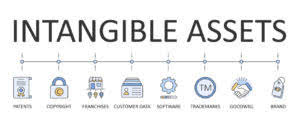It seems we can’t find what you’re looking for. Perhaps searching can help.

While transparency is essential, some financial details must remain confidential to protect the company’s competitive edge. Developing policies that outline what information can be shared and what must remain Oil And Gas Accounting private helps businesses navigate this challenge effectively. Transparency helps reduce uncertainty and wild stock price fluctuations because all market participants can base decisions of value on the same data. Companies also have a strong motivation to provide disclosure because transparency is rewarded by the stock’s performance.
The Impact of Transparency on Financial Institutions

A transparent organization starts with clear and well-defined expectations regarding the type of financial information to be shared. Establishing specific guidelines about what data will be disclosed, how it will be communicated, and how often it will be updated creates a reliable framework for information sharing. You should consult with a licensed professional for advice concerning your specific situation.
Open communication channels.
- It builds trust with stakeholders, supports accountability, and helps prevent fraud and corruption.
- It encompasses the disclosure of financial performance, operational processes, risk factors, and any other relevant data that can influence investment decisions.
- For state and local leaders, USAspending.gov is an essential tool for understanding how federal funding impacts their communities.
- In conclusion, transparency is an essential element of the financial markets that fosters fair competition, informed decision-making, and market stability.
- Financial transparency is crucial for the effective use of public funds, as it allows citizens to see how their tax dollars are being allocated and spent.
- This alignment not only benefits the company but also enhances employee satisfaction and engagement.
Remember, these tips and tricks can help you communicate and collaborate effectively with stakeholders and partners, promoting financial transparency and accountability within your organization. When employees have visibility into the financial performance of their organization, they can better understand how their individual contributions impact the overall success of the company. This knowledge fosters a sense of ownership and accountability, leading to increased motivation and productivity. These frameworks and guidelines specify what kind of financial information should be disclosed, how it should be prepared and presented, and how often it should be updated and verified. Financial transparency underpins trust in capital markets, ensuring stakeholders have access to accurate information for decision-making. The importance of transparency has grown amid high-profile corporate scandals, prompting stricter disclosure requirements.
Sheriffs’ and Constables’ Fees
The case of the LIBOR scandal, where banks were found manipulating interest rates, underscores the need for ethical transparency. By integrating these practices into the fabric of the organization, leaders can cultivate an ethical financial environment that not only upholds the law but also aligns with the broader values of society. This, in turn, can lead to greater trust from customers, investors, and the public, which is invaluable in the financial industry where reputation is everything. For example, after the 2008 financial crisis, financial institutions that focused on rebuilding their ethical image, like JPMorgan Chase, managed to regain public trust more effectively than those that did not.
How to Overcome Common Obstacles and Risks?
The goal is to create an environment where information flows freely Accounting Periods and Methods and accurately, enabling better decision-making and fostering trust. Organisations dedicated to ethical conduct recognise that transparency is crucial to establish trust and ensure accountability. By aligning financial practices with ethical standards, companies comply with regulations and reinforce their brand reputation. Transparent finance is a key pillar in creating a culture of honesty, integrity, and social responsibility. Organisations that commit to transparent financial operations are more likely to prioritise long-term stability over short-term profits.


Cascading financial targets into specific actions—like increasing product sales or expanding customer numbers by X or Y—helps turn abstract goals into actionable steps. When people can see the direct impact of financial goals on their work, they feel more invested in achieving them, and the result of the transparency is more than just information—it becomes motivation. The primary goals of the SEC are to protect investors by ensuring a fair and orderly functioning of the financial markets. The SEC requires publicly traded companies to report their quarterly financials (called a 10-Q) and their year-end financials (called a 10-K).
- The Global Forum is the continuation of a forum which was created in the early 2000s in the context of the OECD’s work to address the risks to tax compliance posed by tax havens.
- Their role in cultivating an ethical environment is to act with integrity, even when no one is watching.
- By examining global practices, businesses can adopt international best practices and enhance transparency.
- Moreover, investors should be aware of underlying investments to understand their risk exposure.
- When businesses and financial institutions provide clear, accessible, and accurate financial statements, it promotes market stability, encourages fair competition, and minimizes the risk of fraudulent activities.
- Similarly, blockchain has been utilized by companies like IBM and Maersk to create more transparent supply chains.
Embrace Technology
Lastly, transparency allows investors to assess risk more effectively, helping them make informed investment decisions. Transparency is essential for investors because it reduces uncertainty, helps to assess a company’s financial health, and enables informed investment decisions. Companies with clear financial reports are more likely to attract investors as they provide easy-to-understand information about their financial situation. The transparency of a company can also impact its stock performance, making it crucial for both investors and the broader financial markets.
Companies that prioritize transparency can reap the benefits of increased investor confidence, reduced risk, and improved overall performance. As regulatory bodies continue to enforce disclosure requirements, it is crucial for all financial institutions, banks, and publicly traded companies to maintain a high level of transparency in their operations and reporting. Reduces uncertainty – financial transparency Transparency helps reduce market uncertainty by providing all participants with access to the same data.2.

Country-by-Country Reporting

This support may be helpful when the FPC needs to takepotentially difficult steps to contain emerging systemic risks. Identifying those risks is the majortask for the FPC and we should be prepared to work with the supervisors and the financial sector to translateour concerns into evolving requirements for public disclosure. As I’ve already noted, one advantage of theuse of information gathered by the regulators for informing the public is that it should be faster and easier toadapt the collection and release of data to changing circumstances. MarketsThe increased use of central counterparties for clearing derivative trades will reduce the complexity of manyof the connections and interdependencies in this huge and growing sector of the financial markets.